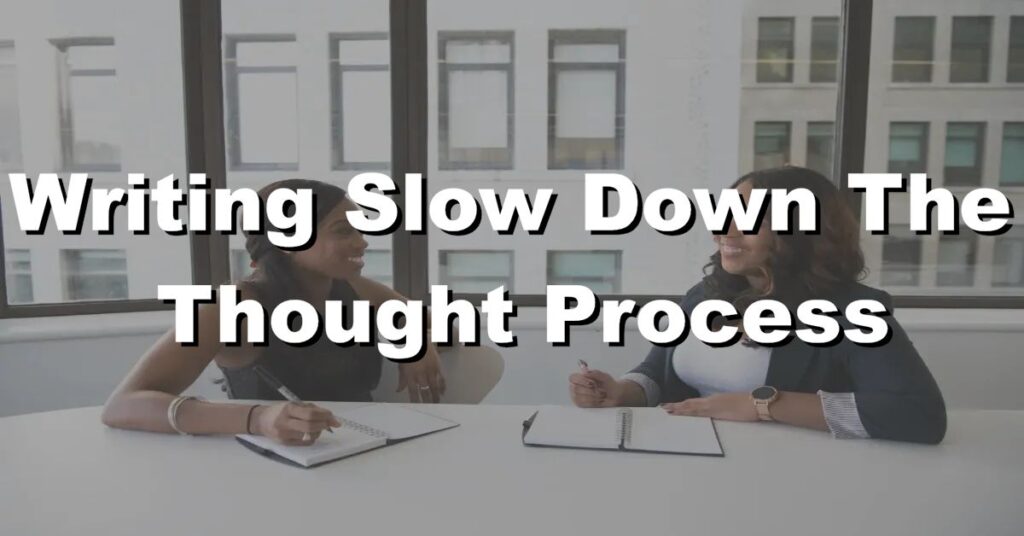Writing is often considered a means of expressing oneself and conveying one’s thoughts and ideas in a written format. However, some people argue that writing can also slow down the thought process, making it harder to organize and articulate ideas. This raises an interesting question: Does writing really slow down the thought process, or is it merely a misconception?
In this article, we will explore this question in detail and examine the effects of writing on the thought process. We will delve into the research on this topic, looking at studies that investigate the relationship between writing and thinking.
The Cognitive Process of Writing
Writing is a complex cognitive process that involves various mental activities. It begins with the generation of ideas, followed by organizing thoughts, structuring the content, and finally translating thoughts into written words.
Throughout this process, writers engage in critical thinking, problem-solving, and decision-making to effectively convey their message.
The Role of Writing in Creativity
Writing plays a crucial role in fostering creativity. It serves as a means of self-expression and exploration, allowing individuals to tap into their imagination and generate new ideas.
Writing encourages divergent thinking, enabling the exploration of multiple perspectives and the generation of innovative solutions. It provides an outlet for creative thinking, helping individuals explore and develop their unique voice and style.
The Benefits of Writing on the Thought Process
Writing has numerous benefits for the thought process. It helps clarify and organize thoughts, allowing for greater coherence and logical flow in written expression.
Writing promotes reflective thinking, as it requires individuals to analyze their ideas, evaluate their relevance, and articulate them effectively. It enhances critical thinking skills, as writers must consider evidence, form arguments, and present their viewpoints persuasively.
The Drawbacks of Writing on the Thought Process
While writing can be a powerful tool for thought, it also presents certain challenges. Some individuals may experience writer’s block or struggle with organizing their thoughts coherently.
The pressure to produce polished work can hinder free thinking and creativity. Additionally, the act of writing may limit spontaneity and restrict the fluidity of ideas that can arise in oral communication.
Techniques for Enhancing Writing and Thinking
Several techniques can enhance both writing and thinking processes. Freewriting, for example, encourages spontaneous and uninhibited writing, allowing ideas to flow without judgment or self-editing.
Mind mapping and brainstorming can help generate and organize ideas visually, stimulating creative thinking and facilitating connections between concepts. Regular practice, reading widely, seeking feedback, and engaging in self-reflection are all effective strategies for improving writing and thinking skills.
Conclusion
Conclusion: In conclusion, writing is a complex cognitive process that can have a variety of effects on the way we think and express ourselves. While some argue that writing can slow down the thought process, others believe that it can actually enhance it.
Through examining the research and exploring the different facets of writing and thinking, we can gain a better understanding of the relationship between the two. Ultimately, the effects of writing on the thought process are multifaceted and may vary from person to person.

